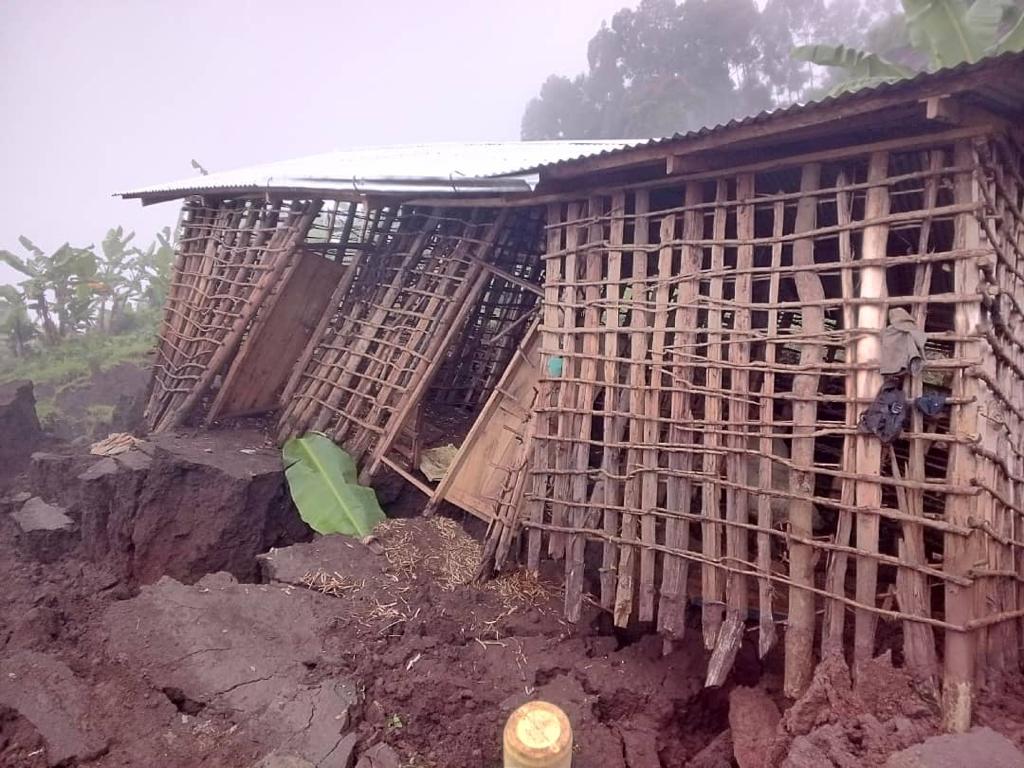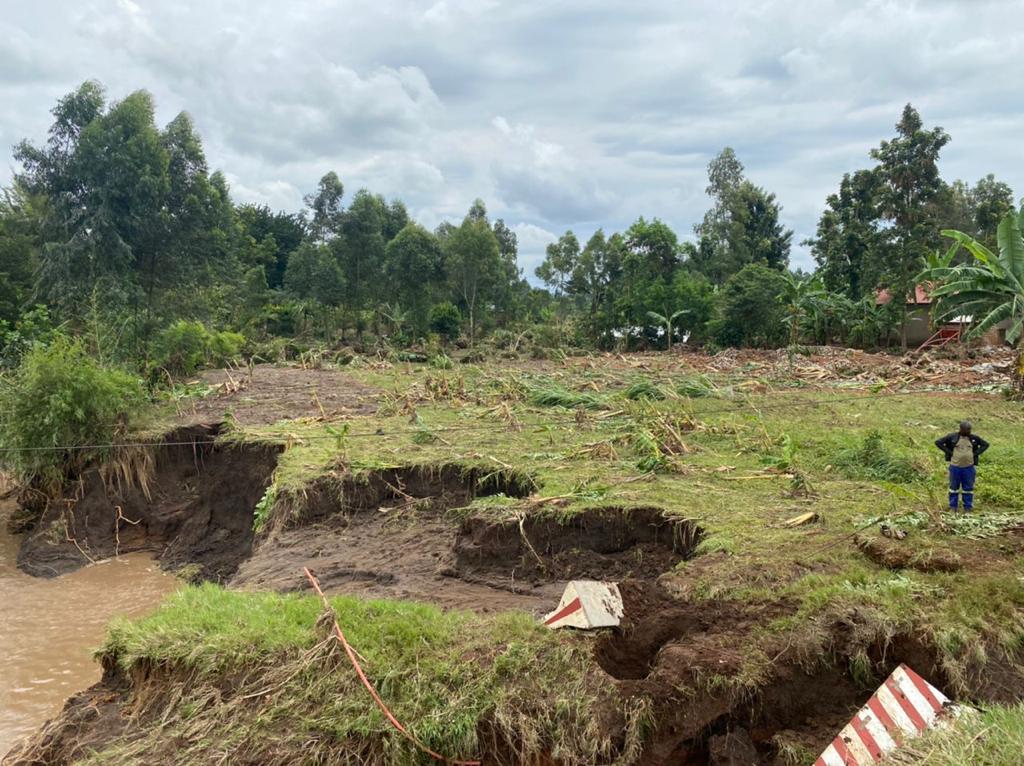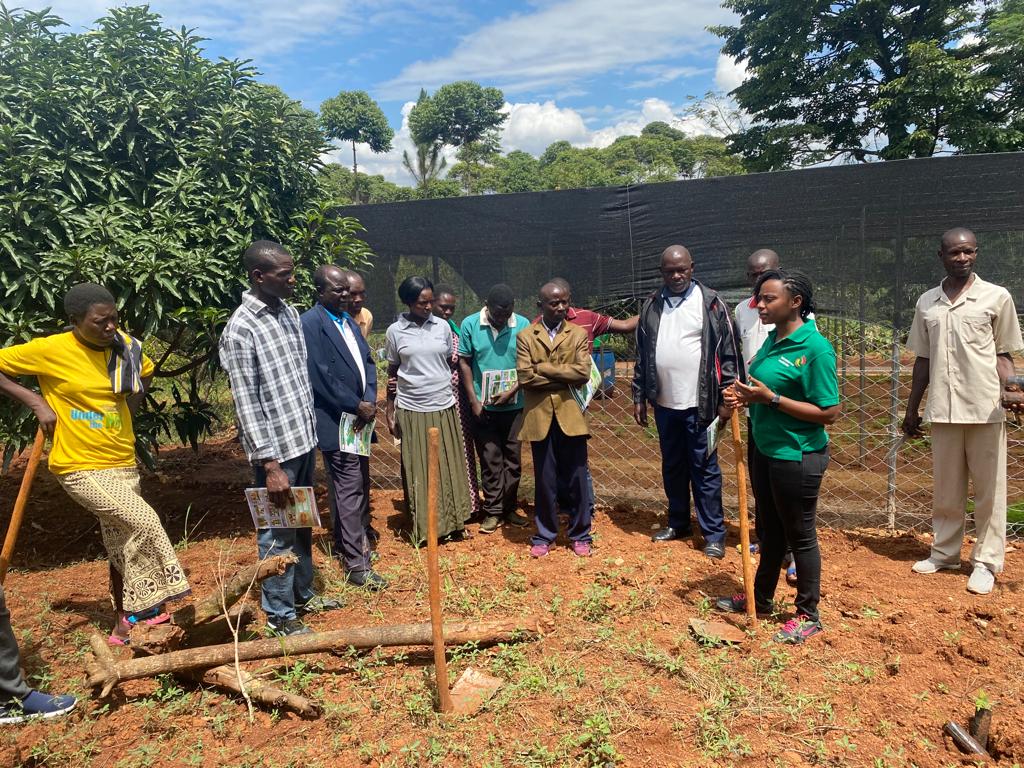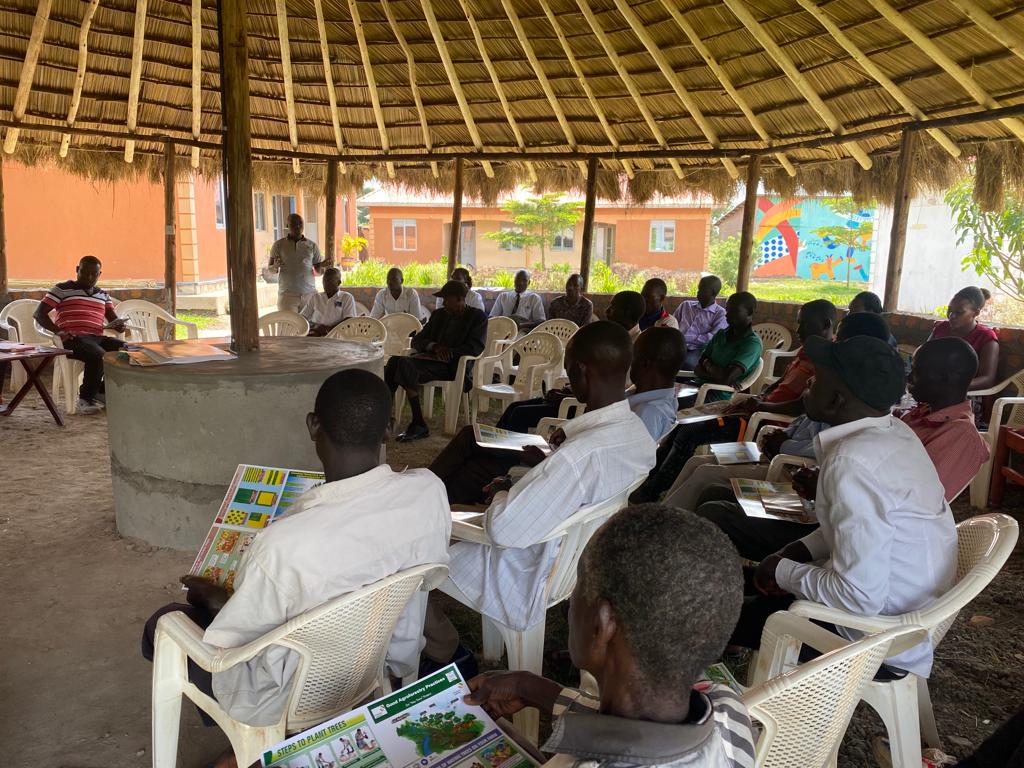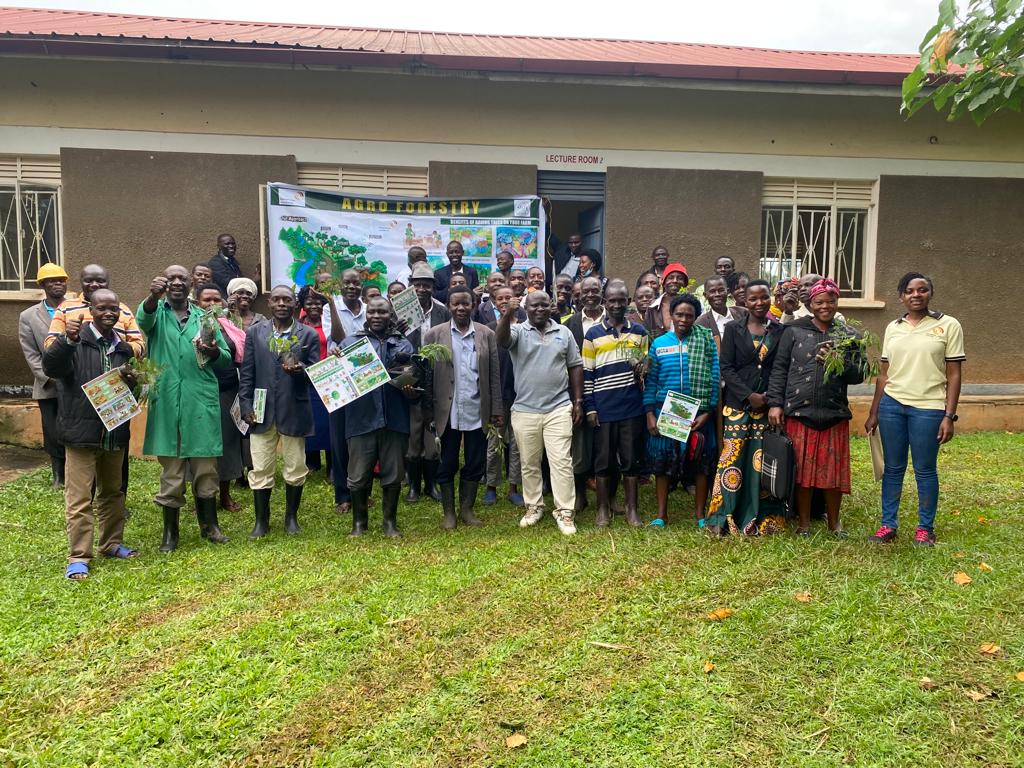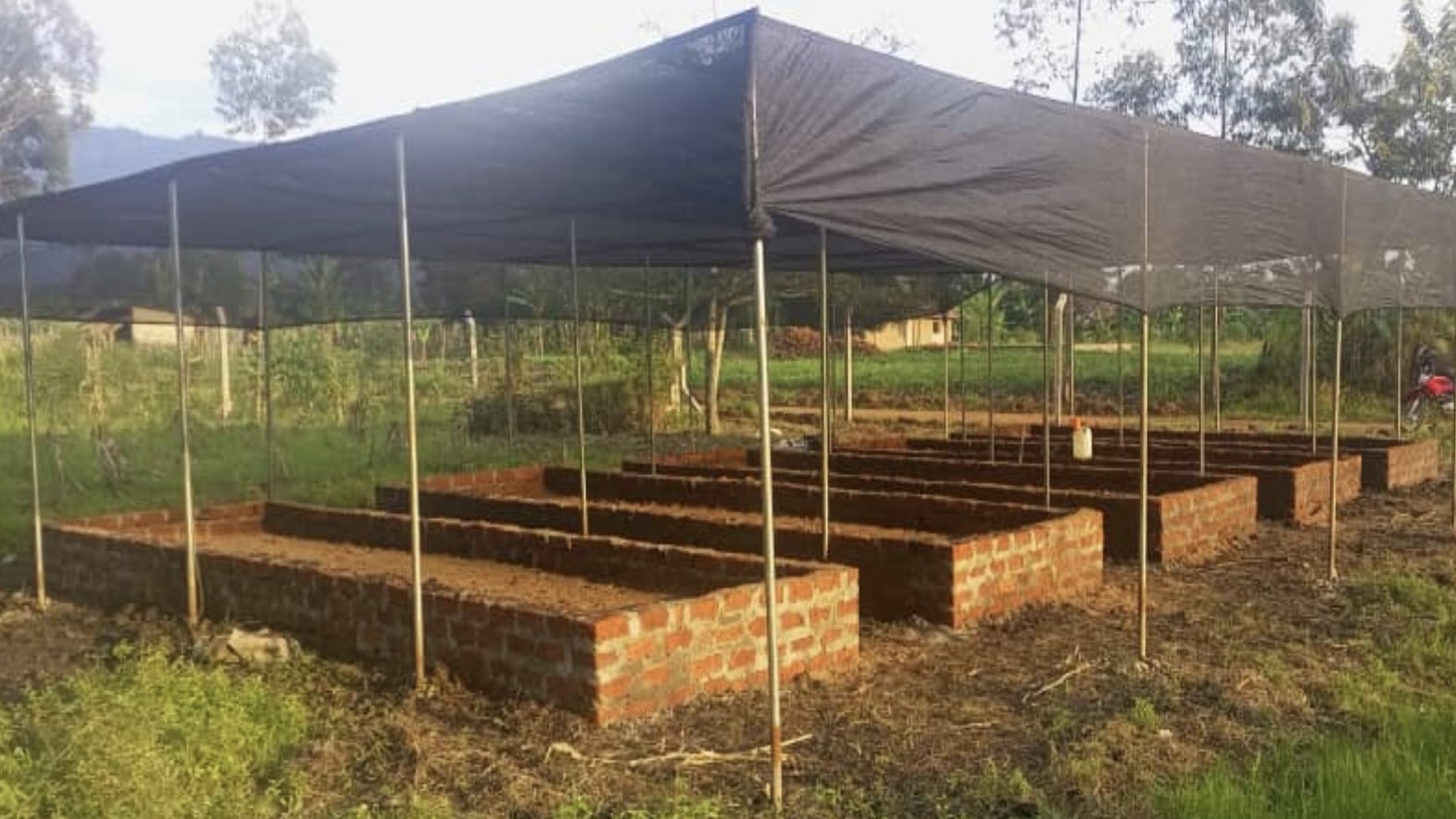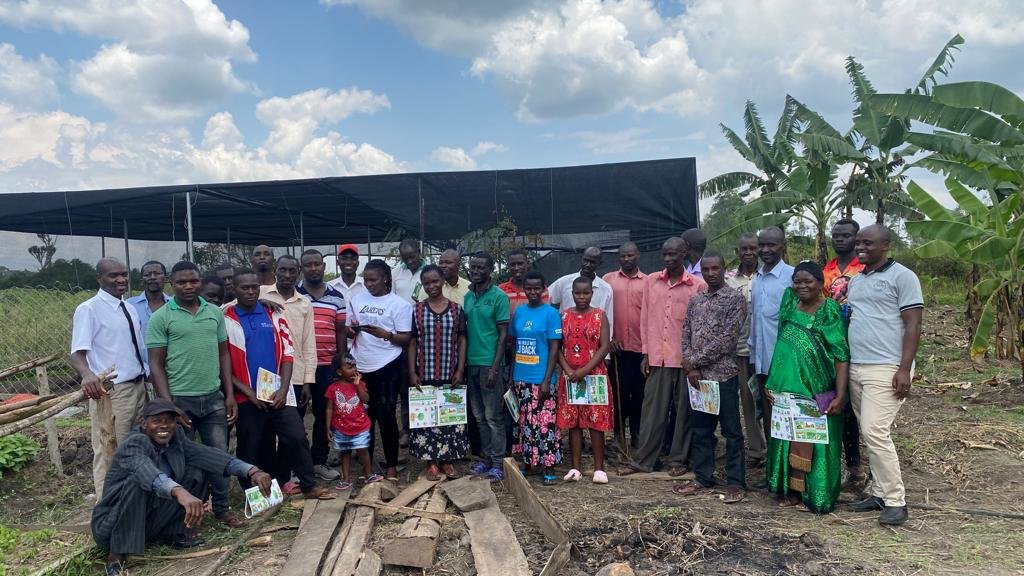
End of July, heavy rainfall in the Eastern region of Uganda has caused floods, river overflow and landslides, resulting in casualties and heavy damage. The affected areas include Kapchorwa and Mbale – places we are working on reforestation together with our partners. Coincidentally, our recently concluded GAP (Good Agroforestry Practices) training with these partners was set to take place right after the disasters hit. In the face of loss and destruction, most people would have probably opted to cancel the GAP training right away. Our partner communities however decided to show a different response.
Heavy Setbacks For Our Partners
Following the Mbale flooding that happened on 31st July 2022, a vast majority of people in the district lost part of their livelihoods, for example planted crops or livestock. Furthermore, there were at least 30 lives lost, water shortage outbreaks as water pipelines were eroded, and anticipated pollution from latrine and sewage washing.
A Fairventures partner in Mbale, The Foundation for Development of the Needy Communities (FDNC), fell victim to the flooding following an overflow from a nearby River Nambale after heavy rains in the Elgon Mountains. This destroyed over 20,000 mature seedlings in the nursery, together with other infrastructure at the nursery premises. A setback for the partner and a loss for the prospective project beneficiaries, who are living in the surrounding communities in Bungoko and Bukiende sub-counties.
Destructions in Mbale and Kapchorwa
In Kapchorwa the community experienced landslides on the 30th of July 2022. Kapchorwa is a hilly landscape characterized by almost bare hills, rocks and ridges. Due to the continuous encroachment and degradation of the hill slopes combined with the high amounts of rainfall typical for the area, landslides are unfortunately common.
People have cleared the vegetation up to the extreme edges of the hills, leaving the land bare. The landslides affected multiple community members, two of which belonged to the project beneficiaries of our agroforestry project. Generally, the disasters left the affected communities in a lot of loss, making their response to the disaster even more remarkable.
Starting Over With Optimism
Even with the grieving of lives and loss, FDNC together with the communities insisted for our scheduled GAP training in Mbale to take place. The catastrophe had been a tough first-hand demonstration of the climate crisis’ impact on this region, which is especially vulnerable to flooding because of its geographical location between Mount Elgon and other highland districts. Moreover, the flood had proven the positive impacts of trees on crop land: Without trees to protect them from the water, maize and cabbage plantations had been washed to the ground.
So instead of burying their heads in the sand, the communities took the floods as a call to action. Samuel Watalatsa, the Executive Director FDNC, said that “they had been tested and pressed, but not crushed” and pledged to revive the restoration project for his communities.
Farmer Field Schools in Eastern Uganda
The community in Kapchorwa reacted similarly, turning up highly (over 78 farmers) for the training with much curiosity and optimism about tree planting and how it will get them out of their vulnerability to landslides.
During both trainings, the farmers were introduced to alley cropping and green wall gardening. For a landscape prone to flooding and landslides, putting alleys of a fodder tree species like Calliandra and making green walls around the garden boundaries will go a long way to improve crop productivity through nutrient recycling of the farmers’ plantations, but also reduce their vulnerability to massive crop destruction and soil erosion in the event of such natural disasters.
Added protection for our nurseries
As a reaction to the flooding in July, the Mbale nursery has been reconstructed and relocated. Additionally, our colleagues installed new safety measures to counteract future disasters: From now on, raised nursery beds make sure that the seedlings are protected in case of flooding.
New nurseries in Mbale
Together with the enthusiasm and positivity we experienced during our events in Mbale and Kapchorwa, this gives us a lot of hope for the future. It proves the incredible commitment of our partners and communities in Uganda to fight the climate crisis together.

